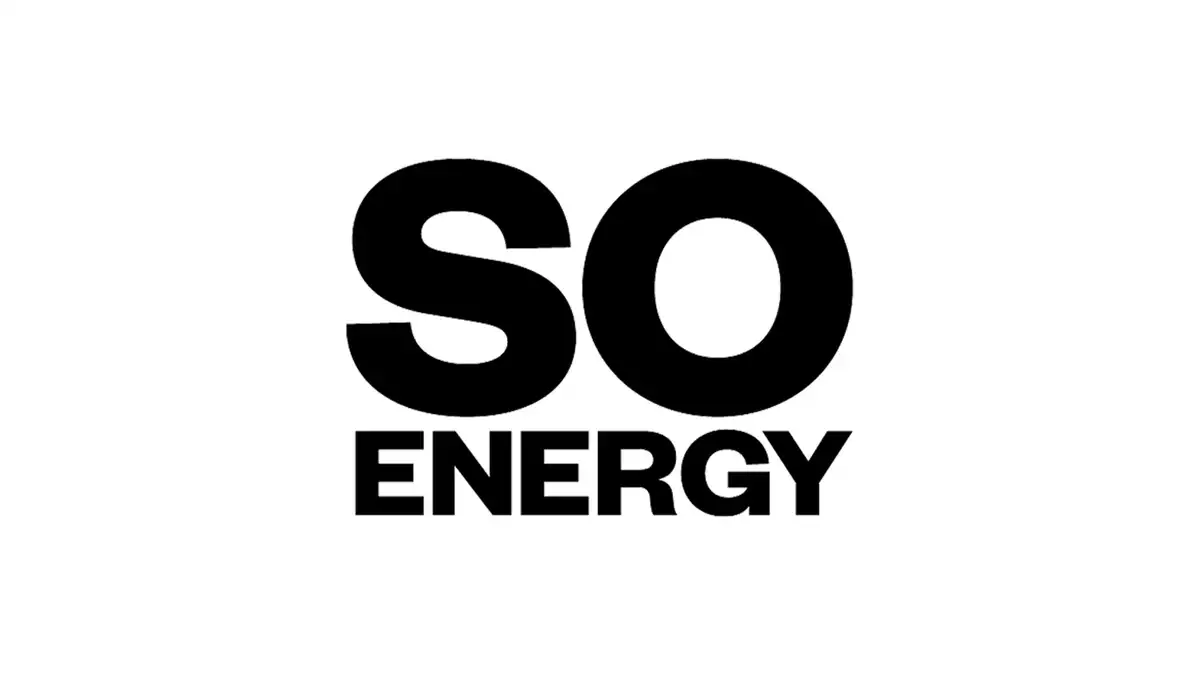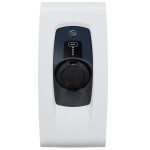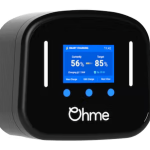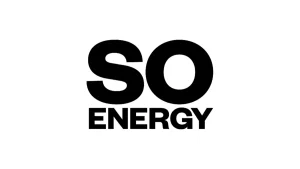EV Tariff Comparison
Compare Energy Tariffs for Electric Car Owners
Best EV Tariffs 2025
*EV tariffs vary by slightly location and change rapidly. We take a sample price at time of publishing but get a quote with each provider your price.
There are a number of factors when comparing EV tariffs which depends on your lifestyle. But our top 2 EV tariffs are the Intelligent Octopus GO and E.ONs Next Drive EV Fixed tariff. Find all the details you need below as well as the other best EV tariffs on the market right now.
Standing Charge
Peak Rate
Off-Peak Hours
Off-Peak Rate
Standing Charge
Peak Rate
Off-Peak Hours
Off-Peak Rate
| wdt_ID | 1 | 2 | Tariff Type | Tariff | Standing Charge | Peak Rate | Off Peak Hours | Off Peak Rate | find_out_more | priority | ||
|---|---|---|---|---|---|---|---|---|---|---|---|---|
| 1 | None | None |  |
Octopus Energy | Intelligent Octopus Go | 62.22p / day | 26.02p / kWh | 23:30pm - 05:30am | 7p / kWh | https://share.octopus.energy/iron-ash-48 | 1 | |
| 2 | None | None |  |
E.on | E.on Next Drive EV Fixed | 58.68p / day | 29.86p / kWh | 12am-7am | 6.7p / kWh | https://www.awin1.com/cread.php?awinmid=54765&awinaffid=1481026&clickref=BCT&ued=https%3A%2F%2Fwww.eonnext.com%2Ftariffs%2Fnext-drive | 2 | |
| 3 | None | None |  |
OVO Energy | OVO Charge Anytime | 63.28p / day | 7p / kWh | Anytime | 7p / kWh | https://www.ovoenergy.com/electric-cars/charge-anytime | 3 | |
| 4 | None | None |  |
British Gas | British Gas EV Tariff | 31.36p / day | 27.08p / kWh | 12am-5am | 7.9p / kWh | https://www.awin1.com/cread.php?awinmid=63010&awinaffid=1481026&clickref=BCT&ued=https%3A%2F%2Fwww.britishgas.co.uk%2Fenergy%2Fev-tariff-home.html | 4 | |
| 5 | None | None |  |
Good Energy | Smart EV Tariff | 60.66p / day | 29.24p / kWh | 12am - 5am | 6.75p / kWh | https://www.goodenergy.co.uk/blog/fixed-ev-tariff/ | 5 | |
| 6 | None | None |  |
Octopus Energy | Octopus Go | 62.22p / day | 26.02p / kWh | 12:30am - 5.30am | 8.5p / kWh | https://share.octopus.energy/iron-ash-48 | 6 | |
| 7 | None | None |  |
EDF | EDF GoElectric Overnight | 63.72p / day | 25.69p / kWh | 1am - 5am | 8.99p / kWh | https://www.edfenergy.com/electric-cars/tariffs | 7 | |
| 8 | None | None |  |
Ecotricity | Green EV Tariff | 44p - 62.20p / day | 30.86p / kWh | 12am-5am | 7.95p/ kWh | https://join.ecotricity.co.uk/ | 8 | |
| 9 | None | None |  |
EDF | EDF EVolve | 63.33p / day | 22.50p / kWh | 1am - 5am | 12.50p / kWh | https://www.edfenergy.com/electric-cars/tariffs | 9 | |
| 10 | None | None |  |
SO Energy | SO Energy So Juniper | 29.95p / day | 37.96p / kWh | 12:30am - 7:30am | 32.39p/ kWh | https://www.so.energy/get-a-quote/ | 10 |
Best Off Peak EV Tariffs 2025
Standing Charge
Peak Rate
Off-Peak Hours
Off-Peak Rate
Standing Charge
Peak Rate
Off-Peak Hours
Off-Peak Rate
Longest Off Peak Hours EV Tariffs 2025
If your charging time is varied and you can’t guarantee being able to charge at home during a limited time slot, then these might be the tariffs to look at. With the longest off peak hours you get a bit more flexibility in your charging.
Standing Charge
Peak Rate
Off-Peak Hours
Off-Peak Rate
Standing Charge
Peak Rate
Off-Peak Hours
Off-Peak Rate
Octopus Energy EV Tariffs 2025
Octopus energy are one of the most popular providers for EV tariffs and energy in general.
Octopus Energy offers several tailored energy tariffs for electric vehicle (EV) owners. Octopus Go provides five hours of low-cost, green energy every night, suitable for any EV and home charger. This option is designed for efficient overnight charging.
Intelligent Octopus Go goes a step further by integrating smart charging. Customers allow Octopus Energy to manage their car charging, benefiting from reduced rates. This tariff provides six hours of cheap, renewable energy nightly.
Standing Charge
Peak Rate
Off-Peak Hours
Off-Peak Rate
Standing Charge
Peak Rate
Off-Peak Hours
Off-Peak Rate
All EV Tariffs 2025
All the EV Tariffs on the market for you to compare.
Standing Charge
Peak Rate
Off-Peak Hours
Off-Peak Rate
Standing Charge
Peak Rate
Off-Peak Hours
Off-Peak Rate
Standing Charge
Peak Rate
Off-Peak Hours
Off-Peak Rate
Standing Charge
Peak Rate
Off-Peak Hours
Off-Peak Rate
Standing Charge
Peak Rate
Off-Peak Hours
Off-Peak Rate
Standing Charge
Peak Rate
Off-Peak Hours
Off-Peak Rate
Standing Charge
Peak Rate
Off-Peak Hours
Off-Peak Rate
Standing Charge
Peak Rate
Off-Peak Hours
Off-Peak Rate
Standing Charge
Peak Rate
Off-Peak Hours
Off-Peak Rate
Standing Charge
Peak Rate
Off-Peak Hours
Off-Peak Rate
Standing Charge
Peak Rate
Off-Peak Hours
Off-Peak Rate
Standing Charge
Peak Rate
Off-Peak Hours
Off-Peak Rate
Standing Charge
Peak Rate
Off-Peak Hours
Off-Peak Rate
JUMP TO
EV Tariffs - HOW TO FIND THE BEST DEALS IN 2025
*As we are living in such uncertain times with energy a large amount of providers have removed specific electric car owner tariffs from the market. It also may not be the best time to switch. We try to keep the deals up to date in a rapidly changing market. But before switching, speak to the new provider for the very latest information on switching
Electric vehicle owners in the UK can dramatically reduce their charging costs by switching to a specialised energy tariff designed for EVs. EV tariffs, also known as electric car tariffs, offer off-peak electricity rates as low as 6.7p per kWh during overnight hours, compared to standard rates of around 27p per kWh, potentially saving hundreds of pounds annually. These rates are significantly cheaper than standard tariffs, especially for electric car owners who charge overnight. Electric car tariffs are a category of plans specifically designed to provide lower priced electricity for charging electric cars. These special energy plans work by providing cheaper electricity during specific time windows, typically between midnight and 7am when demand is lowest.
The key to maximising your savings lies in understanding how different tariff structures work and which one suits your charging habits. Some providers offer fixed overnight windows, while others use smart technology to automatically schedule your charging during the cheapest periods. You’ll need a smart meter to access these rates, but the potential savings make the switch worthwhile for most EV drivers.
Choosing the right EV tariff depends on several factors including your daily driving patterns, home energy usage, and whether you prioritise the lowest rates or maximum flexibility. With providers offering rates as low as 6.7p per kWh, understanding the differences between tariff types, smart charging features, and renewable energy options will help you make an informed decision that reduces both your bills and environmental impact.
What you need to know
EV tariffs can cut charging costs by up to 75% compared to standard electricity rates through off-peak pricing, learn more in our home EV charging guide
Smart meters and compatible charging equipment are essential for accessing the best EV tariff rates and features
The right tariff choice depends on your charging patterns, with options ranging from fixed overnight windows to flexible smart scheduling
Understanding EV Tariffs
EV tariffs are special electricity pricing plans designed specifically for electric vehicle owners. These are a type of electricity tariff offered by electricity suppliers to support electric vehicle charging, often providing tailored rates for off-peak or smart charging.
These tariffs offer cheaper rates during off-peak hours and require a smart meter to track your electricity usage patterns. Your electricity supply setup and choice of electricity supplier can also affect your eligibility for these tariffs.
What Is an EV Tariff?
An EV tariff is a special type of energy tariff offered to customers who have an electric vehicle. Unlike regular electricity plans, these tariffs help you manage the costs of charging your vehicle overnight.
The main feature of EV tariffs is cheaper electricity rates during specific hours. Most suppliers offer a discounted rate between midnight and 7 AM when demand is lowest, allowing you to charge your electric vehicle at a lower cost during off-peak periods.
You can charge your car for less money by plugging it in during these off-peak windows. This timing helps reduce pressure on the national grid whilst saving you money.
EV tariffs work similarly to economy 7 and time of use (TOU) tariffs. They use the same principle of varying prices based on when you use electricity. Fixed tariff options are also available, providing electric car owners with predictable, stable rates for charging, which can help with budgeting and protect against price increases.
How EV Tariffs Differ from Standard Tariffs
Standard variable tariffs charge the same rate for electricity regardless of when you use it. EV tariffs create different pricing periods throughout the day.
Key differences include:
Time-based pricing: EV tariffs offer off peak prices during designated off peak periods, while standard tariffs do not
Higher peak rates: You pay more for electricity during busy periods, known as peak prices, which can significantly increase your overall charging costs if you charge during these times
Smart meter requirement: Standard tariffs don’t always need smart meters
Charging focus: EV tariffs are designed around vehicle charging patterns
A standard variable tariff might charge 25p per kWh all day. An EV tariff could charge 35p during peak hours (peak prices) but only 12p during the off peak period, typically overnight, when off peak prices apply.
This difference means you need to change your charging habits to benefit. You must charge your car during the off peak period to take advantage of the lower off peak prices and save money.
Eligibility Criteria for EV Tariffs
Most energy suppliers require you to own or lease an electric vehicle to qualify for EV tariffs. Some suppliers also accept plug-in hybrid vehicles. Switching to an EV or moving to an EV often involves reviewing your energy plan and considering the installation of a home ev charger to maximize cost savings and charging convenience.
Common requirements include:
Smart meter: You must have a smart meter installed at your property
EV ownership: Proof of electric vehicle ownership or lease agreement
Home charging: Access to off-street parking for home charging
Direct debit: Most suppliers require monthly direct debit payments
Existing customer: Some suppliers require you to be an existing customer before you can access their EV tariffs
You’ll typically need to provide your vehicle registration number when applying. Some suppliers may ask for photos of your charging cable or vehicle.
A smart meter is essential because it tracks your electricity usage by time of day. Without this data, suppliers can’t offer time-based pricing. Having a home ev charger can help you take full advantage of time-based pricing by allowing you to schedule charging during off-peak hours.
Fixed EV tariffs lock in your rates for a set period, usually 12 to 24 months. This protects you from price rises during your contract term.
Types of EV Tariffs Explained
UK energy suppliers typically offer two main categories of EV tariffs with different pricing structures and timing options. These are often referred to as ev charging tariffs or electric vehicle tariffs, and they are designed to supply energy for EV charging at home. You can choose between single-rate plans that charge the same price all day or two-rate plans that offer cheaper overnight electricity for charging your electric vehicle.
Most tariffs include a standing charge, which is a fixed daily fee added to your bill regardless of usage.
Single-Rate vs Two-Rate Tariffs
Single-rate tariffs charge you the same price for electricity throughout the day. You pay one fixed rate whether you charge your EV at 2am or 2pm.
These tariffs work best if you have unpredictable charging patterns. They’re also suitable if you can’t always charge overnight due to your schedule.
Two-rate tariffs offer cheaper electricity overnight when demand is lower. You get a higher daytime rate and a reduced night-time rate. These plans provide cheap electricity during off-peak hours, resulting in substantial off peak savings for regular overnight charging.
Off-peak periods typically run from 12am to 5am but vary between suppliers. Night rates can be 50-70% cheaper than day rates.
Two-rate tariffs save you money if you charge regularly during off-peak hours. They’re ideal for home charging when your car sits unused overnight.
Dynamic and Tracker Tariffs
Dynamic tariffs change your electricity price based on wholesale energy costs. Prices update every 30 minutes or hourly throughout the day.
You pay less when national electricity demand is low. Prices rise during peak times when everyone uses more power.
These tariffs require smart meters and apps to track pricing. You need to be flexible about when you charge your vehicle.
Tracker tariffs follow wholesale electricity prices but update less frequently. They typically change monthly or quarterly rather than hourly.
Both options can offer significant savings for flexible users. However, they carry more price risk than fixed-rate plans. These variable tariffs may be subject to price caps, such as the government’s energy price cap, which sets a maximum limit on how much suppliers can charge for electricity. This regulatory framework helps protect consumers from excessive price increases.
Fixed and Variable EV Tariffs
Fixed EV tariffs lock in your electricity rates for a set period, usually 12-24 months. Your charging costs stay the same regardless of market changes.
Fixed tariffs protect you from price rises during volatile energy markets. You know exactly what you’ll pay for charging throughout your contract.
Variable tariffs can change their rates with market conditions. Many follow the government’s price cap, which updates quarterly. Only certain EV tariffs are covered by the energy price cap, specifically, default or standard variable tariffs. Fixed-rate EV tariffs are generally not covered. When calculating the cap for EV tariffs with variable rates, Ofgem considers both peak and off peak usage to ensure fair regulation of overall costs.
Standard variable tariffs offer more flexibility but less price certainty. Your charging costs can go up or down based on wholesale energy prices.
Variable rates might be lower than fixed rates during stable market periods. However, they expose you to potential price increases when energy costs rise.
Off-Peak and Overnight Charging Benefits
EV tariffs offer significant savings through reduced electricity rates during off-peak hours, typically overnight when grid demand is lowest. These cheaper electricity rates during off-peak hours can dramatically reduce your charging costs compared to standard daytime rates. For example, by charging your EV overnight with an EV tariff, you could see how much you could save on your electricity bills, often hundreds of pounds per year, by optimising your charging times.
Off-Peak Hours Defined
Off-peak hours vary between energy suppliers but typically run from midnight to 5am daily. EDF’s EV tariffs provide five hours of lower-priced off-peak electricity every night (12am-5am) specifically designed for overnight charging.
Some suppliers extend these windows to 7-8 hours. Peak hours usually cover 4pm to 7pm when household energy demand peaks.
Common off-peak periods include:
Midnight to 5am (most common)
11pm to 6am (extended window)
12:30am to 4:30am (shorter window)
Weekend rates may differ from weekday schedules. Check your supplier’s specific times as they can change seasonally.
Overnight Charging Advantages
Overnight charging aligns perfectly with off-peak periods and offers practical benefits beyond cost savings. Your EV charges whilst you sleep, ensuring a full battery each morning without disrupting your routine.
The electricity grid experiences lower demand overnight. This reduces strain on the system and allows renewable energy sources to contribute more effectively.
Key overnight charging benefits:
Convenience – charge whilst sleeping
Grid stability – reduced peak demand
Battery health – cooler temperatures aid charging
Renewable integration – wind power peaks overnight
Your home’s electrical system also benefits from overnight charging. Lower ambient temperatures help prevent overheating of charging equipment.
Savings with Off-Peak Electricity
Off-peak electricity rates can cost 50-70% less than peak rates. A typical EV requiring 50kWh weekly could save £200-400 annually through strategic charging timing.
Time-of-use pricing allows you to charge your car when electricity is cheapest, making home charging significantly more affordable than standard flat-rate tariffs.
Potential annual savings:
Small EV (30kWh battery) – £150-250
Medium EV (50kWh battery) – £200-400
Large EV (75kWh battery) – £300-600
Smart charging systems maximise these savings by automatically scheduling charging during the cheapest periods. Your actual savings depend on your driving patterns and chosen tariff structure.
Comparing the Best EV Tariffs in 2025
The best EV tariffs offer rates as low as 6.7p per kWh during off-peak hours, with providers like E.ON Next Drive leading the market alongside flexible options from OVO and competitive fixed-rate deals from British Gas. Key differences lie in charging windows, peak rates, and smart charging features. Some tariffs also include access to public charging points or an extensive network of charge points for added convenience.
Popular Providers and Their Tariffs
E.ON Next Drive stands out as the cheapest EV tariff currently available at 6.7p per kWh between midnight and 7am. This tariff offers 100% renewable electricity with fixed prices for one year and no exit fees.
OVO Charge Anytime provides the most flexible charging option at 7p per kWh. You can charge anytime with smart scheduling technology that automatically finds the cheapest rates.
British Gas Electric Driver offers stability with a competitive 7.9p per kWh rate during off-peak hours (midnight to 5am). This tariff includes fixed pricing and requires a smart meter for time-of-use billing.
Good Energy EV Charge provides 6.75p per kWh between midnight and 5am, focusing on 100% renewable energy sources. However, it comes with a £75 exit fee.
Octopus Intelligent Go delivers 7p per kWh with dynamic scheduling that optimises charging times based on grid demand and renewable energy availability.
Features to Look for in EV Tariffs
Smart charging compatibility allows your tariff to automatically schedule charging during the cheapest periods. OVO Charge Anytime and Octopus Intelligent Go excel in this area with advanced scheduling algorithms. Having a home charger or a dedicated charging point at your residence can maximise the benefits of these smart charging features, making EV ownership more convenient and cost-effective.
Charging window flexibility varies between providers. E.ON Next Drive offers seven hours of off-peak charging, while British Gas Electric Driver provides five hours. Longer windows give you more flexibility for charging completion.
Exit fees can impact your ability to switch providers. E.ON Next Drive and OVO Charge Anytime have no exit fees, whilst Good Energy charges £75 and British Gas Electric Driver charges £50 per fuel.
Smart meter requirements apply to all major EV tariffs. You’ll need one installed to access time-of-use pricing and smart charging features.
Renewable energy credentials matter if environmental impact concerns you. E.ON Next Drive and Good Energy both offer 100% renewable electricity backing their tariffs.
Smart Meter Technology and EV Charging
Smart meters provide the foundation for modern EV energy tariffs by tracking your electricity usage every 30 minutes. This precise monitoring enables energy suppliers to offer time-of-use pricing that rewards you for charging during off-peak hours.
The Role of Smart Meters in EV Charging
Smart meters record your electricity consumption in 30-minute intervals throughout the day. This detailed data allows energy suppliers to see exactly when you use electricity.
Traditional meters only show total usage over months or quarters. They cannot track when you consume power during the day or night.
Smart meters enable time-of-use tariffs that charge different rates at different times. This technology is essential for EV owners who want to access cheaper overnight charging rates.
The meters send usage data directly to your energy supplier. You don’t need to submit manual readings or wait for estimated bills.
Key smart meter features for EV charging:
Half-hourly usage tracking
Automatic data transmission
Real-time consumption monitoring
Integration with smart charging systems
Some advanced tariffs like Octopus Intelligent Go use smart meter data to automatically schedule your EV charging. This happens during the cheapest and greenest electricity periods.
How Smart Meters Enable Cheaper Tariffs
Smart meters unlock access to EV-specific tariffs that can significantly reduce your charging costs. Standard off-peak rates run from 12am-5am for just 7.9p per kWh on many tariffs.
Without a smart meter, you’re limited to standard single-rate tariffs. These charge the same price regardless of when you use electricity.
Smart charging at home overnight could save up to 20% on your EV charging costs. The exact savings depend on your chosen tariff and charging habits.
Popular smart meter EV tariffs include:
Fixed off-peak windows (typically 12am-5am)
Dynamic pricing that changes hourly
Intelligent scheduling that finds the cheapest times
OVO’s Charge Anytime add-on offers 7p per kWh charging any time of day through smart meter technology. This removes the need to schedule charging within specific hours.
Some suppliers offer additional benefits beyond cheap rates. EDF’s smart charging bolt-on provides extra off-peak hours calculated specifically for your usage patterns.
Sustainability and Renewable Energy in EV Tariffs
Many EV tariffs now prioritise environmental benefits by offering 100% renewable electricity from sources like wind, solar, and hydroelectric power. These green energy options reduce your carbon footprint whilst often providing cheaper overnight charging rates.
By integrating solar panels with smart charging, you can further reduce costs and increase sustainability by optimising your EV charging times to coincide with peak solar energy generation.
100% Renewable Energy Tariffs
Several UK energy providers now offer EV tariffs powered entirely by renewable sources. Ecotricity’s EV tariff provides 100% green electricity for overnight charging at competitive rates.
ScottishPower’s EV Saver tariff delivers 100% green electricity for environmentally conscious drivers. This ensures your vehicle runs on clean energy rather than fossil fuels.
The Intelligent Octopus Go tariff uses 100% renewable energy sources including solar, wind, and water power. These tariffs typically charge your car during off-peak hours when renewable generation is highest.
Key renewable energy sources include:
Wind power (especially overnight)
Solar energy
Hydroelectric power
Biomass energy
The Impact of Renewable Electricity on EV Charging
Renewable electricity transforms EV charging from simply avoiding petrol to actively supporting clean energy generation. When you charge overnight, you’re using wind power that would otherwise go to waste.
This timing benefits the electricity grid by using renewable energy when demand is low. Your EV essentially stores excess green energy for later use.
The environmental impact is significant. Charging with renewable electricity eliminates carbon emissions from both fuel production and vehicle operation. This makes your transport truly sustainable rather than just electric.
Many EV tariffs prioritise renewable energy sources to make your general energy usage more sustainable alongside cheaper charging costs.
Choosing the Right EV Tariff for Your Needs
Your charging patterns and household energy usage determine which tariff offers the best value. The cheapest off-peak rate isn’t always the best choice if the daytime prices are significantly higher. Some tariffs are designed to cover just your car’s charging, providing flexibility and savings for electric vehicle owners, while others factor in whole-house energy use.
When comparing costs, keep in mind that electric cars often have lower running costs than traditional vehicles, especially when using specialised EV tariffs that take advantage of off-peak charging rates.
Assessing Your Charging Habits
Track your current charging routine for at least two weeks before switching tariffs. Note when you plug in your car and how many hours you charge each day.
Night-only charging works best with tariffs like the Next Drive tariff at 6.7p/kWh between midnight and 7am. This suits drivers who arrive home by 10pm and don’t need their car until morning.
Mixed charging patterns require careful calculation. If you charge 60% at night and 40% during the day, compare total costs rather than just off-peak rates.
Consider your weekly routine:
Monday to Friday: Can you charge overnight consistently?
Weekends: Do you need daytime top-ups for longer trips?
Holiday periods: Will your routine change seasonally?
Flexible charging options like OVO Charge Anytime at 7p/kWh use smart technology to find the cheapest times automatically. This suits unpredictable schedules.
Factors Affecting Tariff Suitability
Your home’s energy consumption beyond car charging affects which tariff saves you money. High daytime usage makes low peak rates crucial.
Smart meter requirements apply to all EV tariffs. Check if your current meter is compatible or if you need a free upgrade from your supplier.
Exit fees vary significantly between providers:
No exit fees: E.ON Next Drive, Octopus tariffs
£50-£75: British Gas, Good Energy
£100: Ecotricity per fuel type
Contract length affects your flexibility. Fixed-rate tariffs lock in prices for 12 months, whilst variable rates can change monthly.
Standing charges add daily costs regardless of usage. Compare these alongside unit rates for accurate cost calculations.
Renewable energy options cost slightly more but support green electricity generation. Good Energy EV Tariff offers 100% renewable power at 6.75p/kWh off-peak.
The best EV tariff depends on your specific circumstances rather than just the lowest advertised rate.
Customer Service and Support
Provider Reputations
Octopus Energy tend to score best in reviews followed closely by Good Energy.
Company
Trustpilot Score
Octopus Energy
4.7
Good Energy
4.5
OVO Energy
4.2
E.ON
3.8
EDF
3.4
British Gas
2.4
| Company | Trustpilot Score |
|---|---|
| Octopus Energy | 4.7 |
| Good Energy | 4.5 |
| OVO Energy | 4.2 |
| E.ON | 3.8 |
| EDF | 3.4 |
| British Gas | 2.4 |
Customer Reviews
Customer reviews can provide a wealth of information on various aspects of an EV tariff, such as pricing, ease of use, and communication from the provider. Platforms like Trustpilot, Google Reviews, and dedicated green energy forums can be useful sources for gathering real customer experiences.
When evaluating customer reviews, consider the following key aspects:
- Billing accuracy and ease of understanding
- Quality and accessibility of customer support
- Overall satisfaction with the tariff and provider
Remember that no provider will have perfect reviews, but pay attention to trends and recurring complaints to identify potential issues or areas to investigate further when considering an EV energy tariff.
EV Tariff FAQS
EV tariff decisions depend on your charging habits, timing flexibility, and current energy costs. Time-of-use pricing offers significant savings during off-peak hours, whilst supplier-specific plans often provide better rates than standard domestic tariffs. To access the best rates, it is important to have compatible EV chargers, as some tariffs are designed to work with specific charging equipment.
When considering switching tariffs, note that some suppliers require you to be an existing customer before you can access their EV-specific plans.
Do I really need an EV tariff, or can I just use my standard plan?
You can use any standard electricity plan, but you will likely pay much more. A typical standard rate is around 25p per kilowatt-hour (kWh) at all times. EV tariffs offer off-peak rates as low as 7.5p per kWh. For an average EV driver covering 8,000 miles a year, this difference could mean paying over £400 on an EV tariff versus more than £1,000 on a standard plan for their car charging alone.
What's the catch with getting cheap overnight electricity?
The main “catch” is that to fund the cheap off-peak rate, most EV tariffs have a significantly higher electricity rate during peak daytime hours. If your household uses a lot of electricity during the day (e.g., for electric heating or working from home), the higher peak rate could cancel out your overnight charging savings. The key is to shift as much electricity usage as possible to the off-peak window.
Do I need a specific type of charger to use an EV tariff?
While you don’t always need a specific brand of charger, you will always need a smart meter installed in your home. For the most flexible tariffs (like those that offer cheap rates outside of a fixed overnight window), you will also need a compatible smart EV charger or vehicle. This allows your energy supplier to communicate directly with your car or charger to automatically schedule charging when prices are lowest.
What happens if I have solar panels? Can I still benefit from an EV tariff?
Yes, combining solar panels with an EV tariff can be a powerful combination. You can use your free, self-generated solar power to charge your car during the day, and use the cheap off-peak electricity from the grid to top up overnight.
However, you must check how the tariff affects your solar export payments (the Smart Export Guarantee or SEG). Some providers offer great import tariffs for EVs but very low export rates, so you’ll need to calculate what works best for your overall energy usage and generation.
Are EV tariffs worth it if I don't drive very many miles?
For very low-mileage drivers, an EV tariff may not be the best choice. If you only need to charge once every week or two, the small saving you make on charging might be outweighed by the tariff’s higher daytime electricity rates or a higher daily standing charge. It’s best to calculate your expected annual charging cost and compare it against the potential increase in your standard household bill before switching.
Is it difficult to manage charging only during the cheap hours?
No, it’s very simple. This is almost always automated. You can set your charging schedule either in your vehicle’s infotainment system or through your smart charger’s app. You typically just need to tell it what time you need the car to be ready by (e.g., 7 am), and the system will automatically ensure it only draws power during the cheap off-peak window you have with your energy provider.
EV News & Guides
- EV Guides
- EV Guides
Compare EV Chargers

- 7kW
- Tethered
- From £1199 or £49.37 Per Month
*includes standard installation

- 7kW
- All in One
- From £1034 or £30 Per Month
*includes standard installation

- 7.2kW
- Tethered or Untethered
- From £845 or £14.07 Per Month
*includes standard installation

- 7.2kW
- Tethered or Untethered
- From £1139 or £15.63 Per Month
*includes standard installation

- 7kW
- Tethered
- From £979
*includes standard installation

- 7.2kW
- From £830 or £15.63 Per Month
*includes standard installation

- 7.4kW
- Tethered or Untethered
- From £845 or £14.07 Per Month
*includes standard installation

- 7kW
- Untethered
- From £949 or £28.86 Per Month
*includes standard installation

- 7kW
- Tethered
- From £1079 or £20.89 Per Month
*includes standard installation

- 7kW
- Tethered or Untethered
- From £895 or £33.13 Per Month
*includes standard installation

- 7.3kW
- Untethered
- From £850
*includes standard installation

- 7.4kW
- Universal or Type 2 Tethered
- From £866
*includes standard installation

- 7.4kW
- 1 x or 2x Universal Sockets
- From £1,249
*includes standard installation

- 7.4kW
- Type 2 socket with auto-lock
- From £895
*includes standard installation

- 7.4kW
- Type 2 socket with auto-lock
- From £895
*includes standard installation

- 7.4kW
- Tethered Type 2
- From £969
*includes standard installation

- 7.4kW
- Tethered Type 2
- From £849 or £17.40 Per Month
*includes standard installation

- 7kW
- Tethered or Untethered
- From £1079 or £20.89 Per Month
*includes standard installation

- 7.4kW
- Universal Socket
- From £995
*includes standard installation









